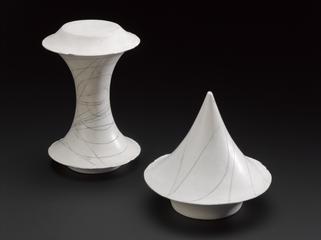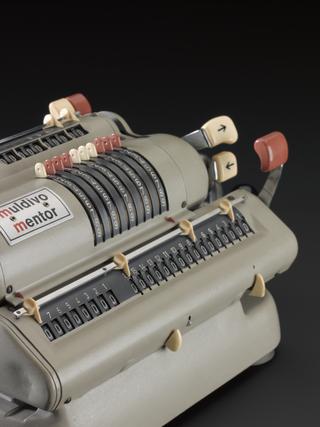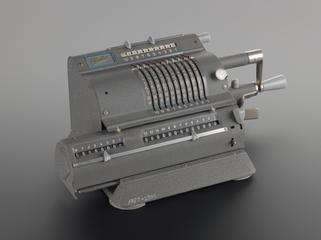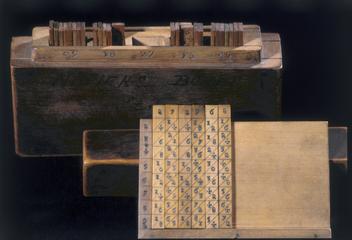
Ruler
- maker:
- J Halden and Company Limited


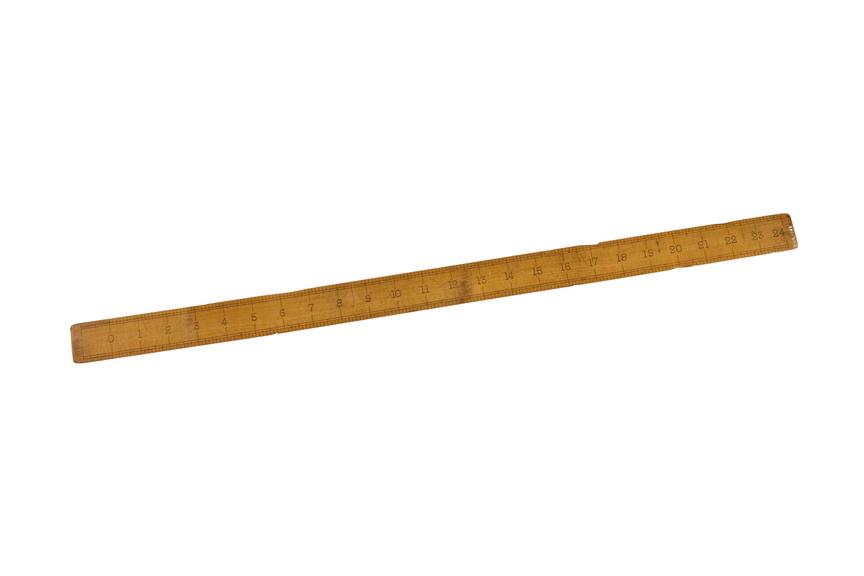
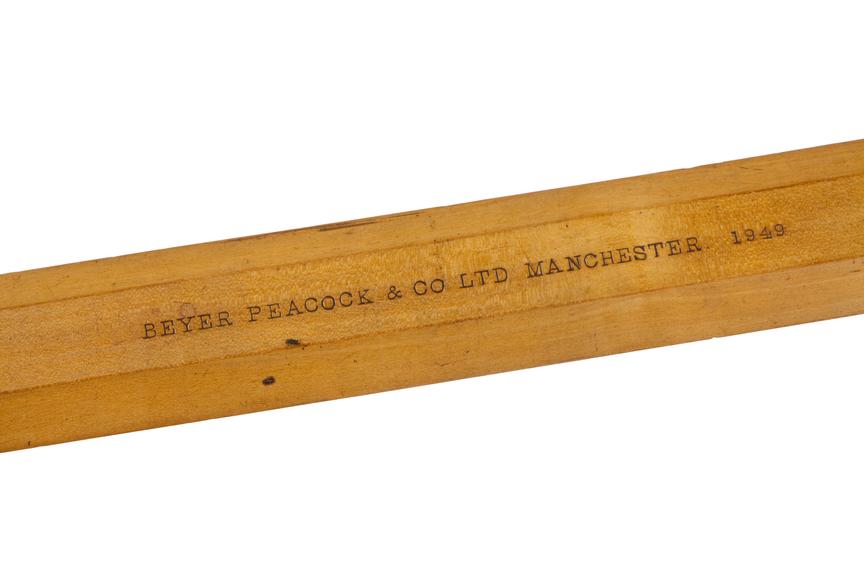
Rule, made by J. Halden & Co, and used by Beyer, Peacock and Company.
Despite their everyday nature, rulers are an important technology. Everyone estimates distances differently, so who is to say how long something is? A ruler is a simple tool to precisely measure short distances in a standard way that is the same no matter who measures it. Throughout history different cultures have relied on devices like rulers, but in a variety of different units of measurement. For example, measuring rods were used in ancient Egypt, in a standard length called the ‘cubit’. The cubit was based on the distance from the elbow to the fingertips of a tall man, and divided up into smaller units based on palms. Laws were made to ensure the cubit was the same length everywhere in Egypt.
This particular ruler is stamped 1949 and uses Imperial units, which were standardised across Britain in 1826 (though based on much older units with the same names) and widely used around the world, even today. It was made by J Halden & Co, a Manchester based supplier of scientific instruments and engineering drawing office tools. It was used by the Manchester railway locomotive manufacturer Beyer, Peacock and Company, and its long 24-inch length means it was likely used to prepare engineering drawings.
Details
- Category:
- Mathematics
- Object Number:
- Y5100.1263
- Materials:
- wood (unidentified)
- Measurements:
-
overall: 8 mm x 654 mm x 36 mm,
- type:
- ruler
